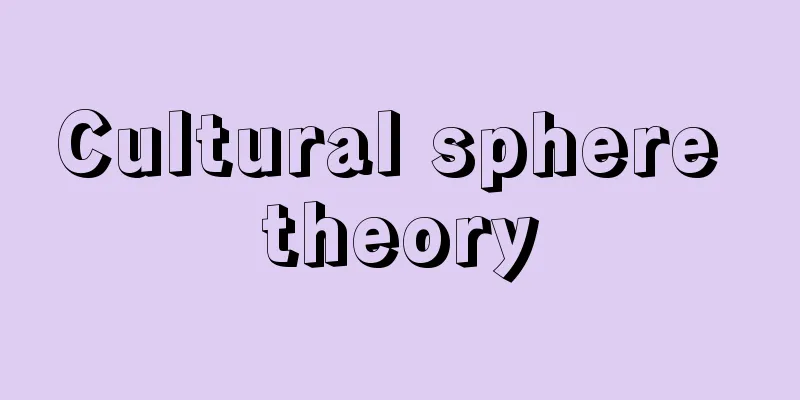Cultural sphere theory

|
A cultural history theory put forward in the early 20th century by German and Austrian ethnologists. It attempted to reconstruct the unrecorded cultural history of humankind on a global scale by considering several cultural spheres from the spatial distribution of culture and setting several cultural layers from a chronological perspective. Representatives of this theory include W. Schmidt and L. Frobenius. It rapidly lost support after World War II. → Related article Graebner Source : Heibonsha Encyclopedia About MyPedia Information |
|
ドイツ,オーストリアの民族学者が中心となり20世紀初頭に唱えた文化史的学説。文化の空間的分布からいくつかの文化圏を考え,時間的前後関係からいくつかの文化層を設定することによって,記録をとどめていない人類の文化史を世界的規模のもとに再構成しようとしたもの。W.シュミット,L.フロベニウスらが代表。第2次大戦を境に急速に支持を失った。 →関連項目グレーブナー 出典 株式会社平凡社百科事典マイペディアについて 情報 |
Recommend
Arbuzov, Aleksei Nikolaevich
Born: May 26, 1908, Moscow [Died] April 20, 1986. ...
Akoya
[1] [Name] ① Abbreviation of "akoyadama (Akoy...
Hydromedusa tectifera (English spelling) Hydromedusatectifera
…Eggs are laid in holes dug on the shoreline, wit...
Ainono Dam - Ainono Dam
…In addition to rice cultivation, tobacco cultiva...
The Kitazawa Jinnojo Family
...The main inn was originally run by the Usukura...
Ahmet Vefik Paşa
1819‐91 Ottoman politician and man of letters. The...
Hammond, G.
...Tobacco smoke contains various carcinogenic hy...
Wonsan - Genzan
It is a city in Gangwon Province, North Korea, fa...
Stephanandra Tanakae (English spelling)
…[Yamanaka Futoshi]. … *Some of the terminology t...
Lonkā (English spelling) Lonka
...Each sect gave birth to further sub-sects, and...
Long hair - Kaminaga
〘Noun〙① One of the taboo words for the Saigū or Ne...
Median
The median is the value that is exactly in the mid...
Woodhull, Victoria Claflin
Born September 23, 1838 in Homer, Ohio. [Died] Jun...
Hell, M. (English spelling) HellM
...That is, the human body is under the influence...
Johansen, WL (English spelling) JohansenWL
…The traits (phenotypes) of living organisms are ...







![Audi NSU Auto Union [company] - Audi NSU Auto Union](/upload/images/67cf197980812.webp)

